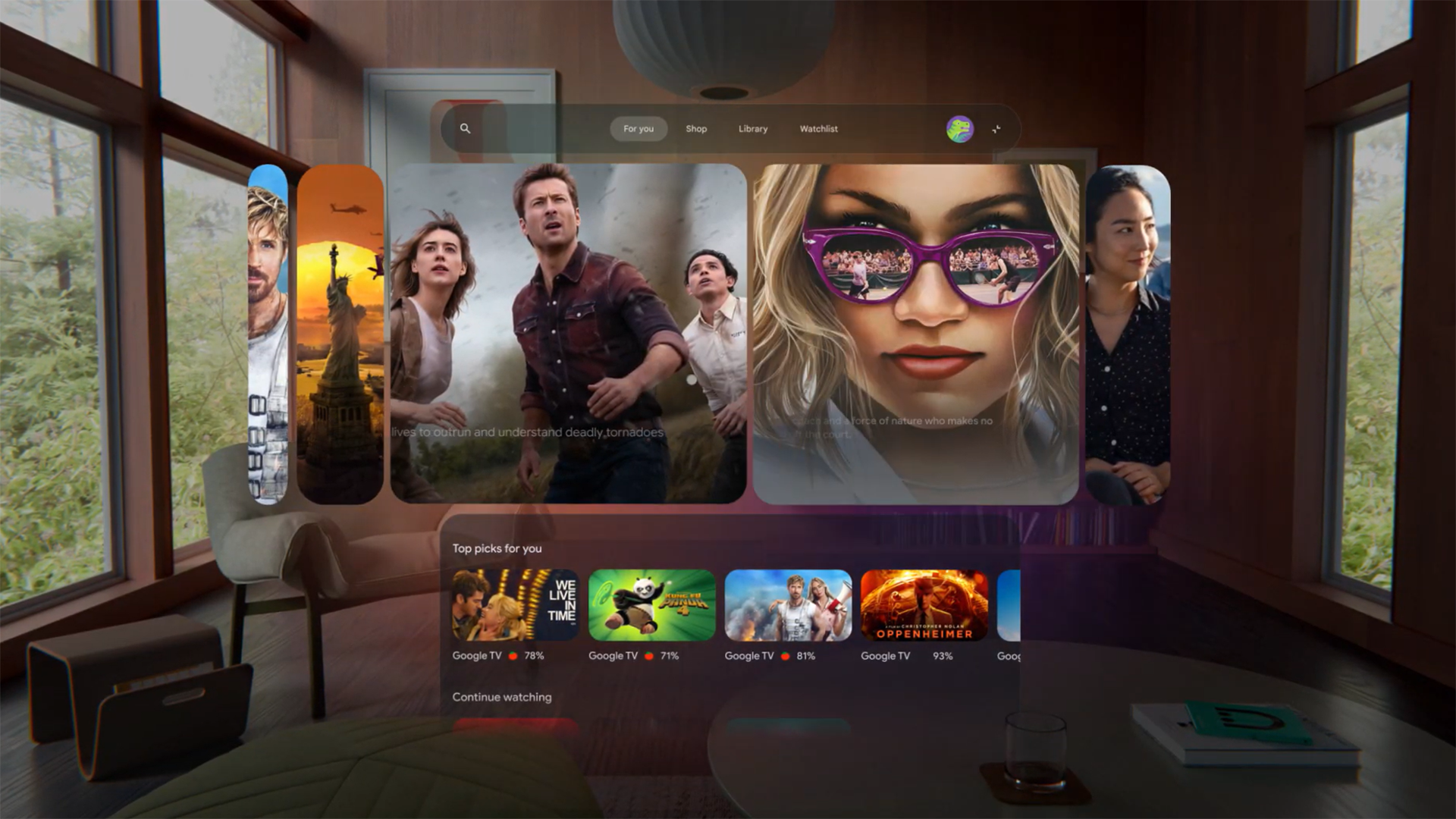
TL;DR
- We’ve captured some screenshots of the Android XR user interface, including its Quick Settings panel and home screen.
- These screenshots were taken from the recently released Android XR emulator.
- Android XR is a new version of the Android operating system designed for XR headsets and AR smart glasses.
Google has finally unveiled Android XR, a new version of the Android OS designed from the ground up for XR devices like VR headsets and AR smart glasses. Ahead of its debut next year on the Samsung XR headset codenamed “Project Moohan,” Google released a variety of tools to help developers get started in porting their apps to the new platform. One of these tools is the Android XR emulator, and thanks to it, we were able to capture a few screenshots showing off the user interface of the new OS.
Before we show you images of Android XR, we need to mention a few things. The Android XR emulator is based on Google’s core Android XR platform which means it doesn’t have any manufacturer customizations. Samsung may customize the UI a bit for its XR headset as it does for its other Android-based devices. The app launcher and Quick Settings panels, in particular, are likely targets for customization, for example. If you compare the stock version of Android from AOSP to Samsung’s One UI, you’ll see what I mean. It’s also worth noting that the screenshots we have are from the first build of the Android XR emulator and that subsequent releases of the emulator could change things.
With that out of the way, here’s a first look at some core parts of the Android XR user interface. These screenshots were sent to us by Android developer Narek, and they showcase aspects such as app windows, the Settings app, the home screen, the app drawer, the recents menu, the keyboard, the Quick Settings, the notifications panel, and more. The notifications, recents menu, and Settings look as you’d expect.
Apps like the Google Play Store currently open with their tablet UI, but there’s a header above them that lets you minimize or close the window. Interestingly, the Play Store seems to already filter for XR apps, but it also shows apps that are deemed “compatible” with Android XR.
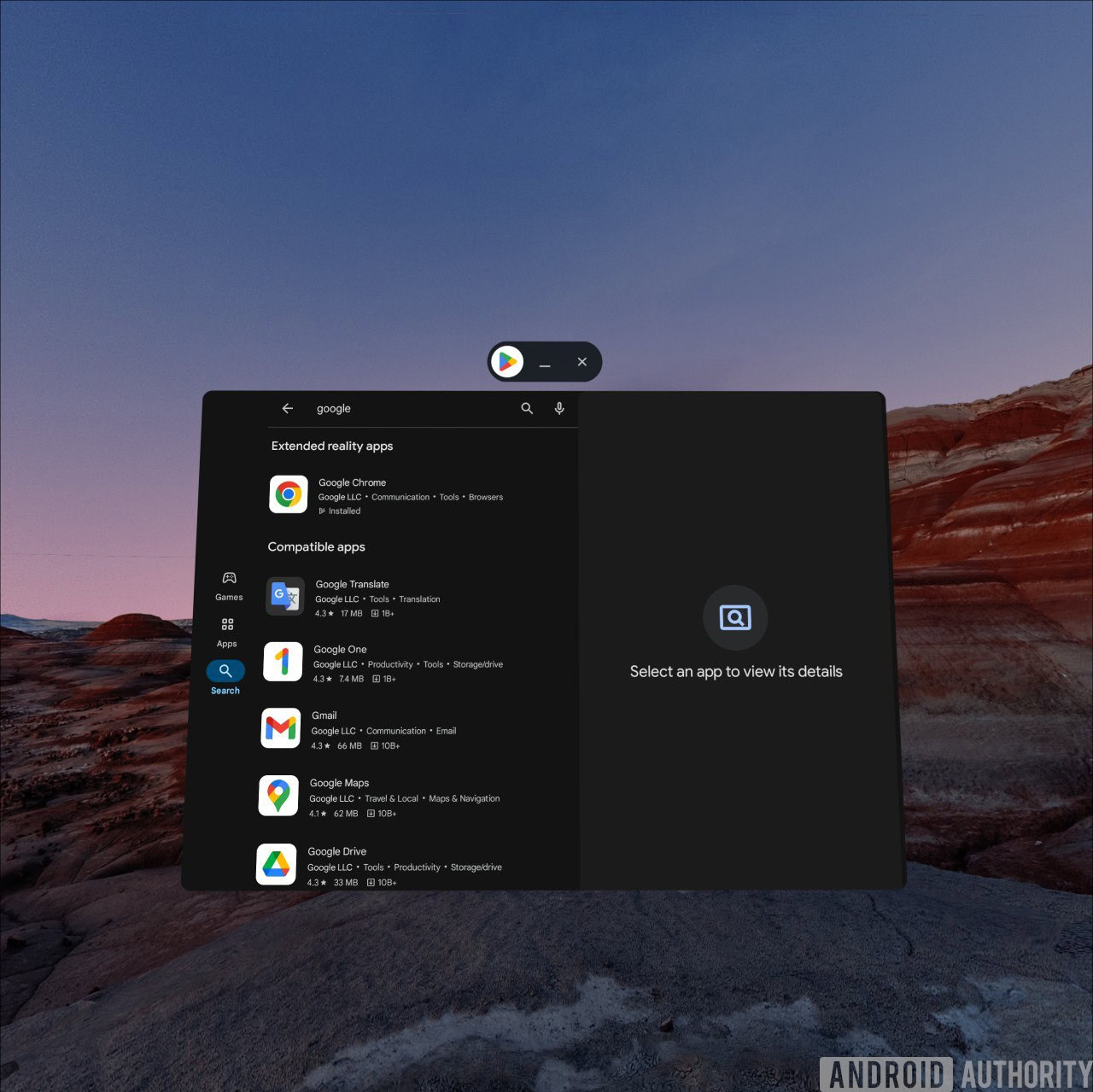
Mishaal Rahman / Android Authority
Some of the bigger UI changes are in the home screen and the Quick Settings panel. The home screen consists of two pages, one for pinned apps plus system shortcuts and another for the full app list. The pinned apps page contains apps that you’ve chosen to pin from the app list as well as buttons to return to home, open the recents menu, open the notifications panel, and open the Quick Settings panel. The app drawer is simply a list of installed apps, as you’d expect.
The Quick Settings panel contains toggles for internet, Bluetooth, and many common Android settings, but it also has some XR-specific stuff, too, such as toggles for Boundary, Passthrough, Passthrough Window, Recenter, and more.
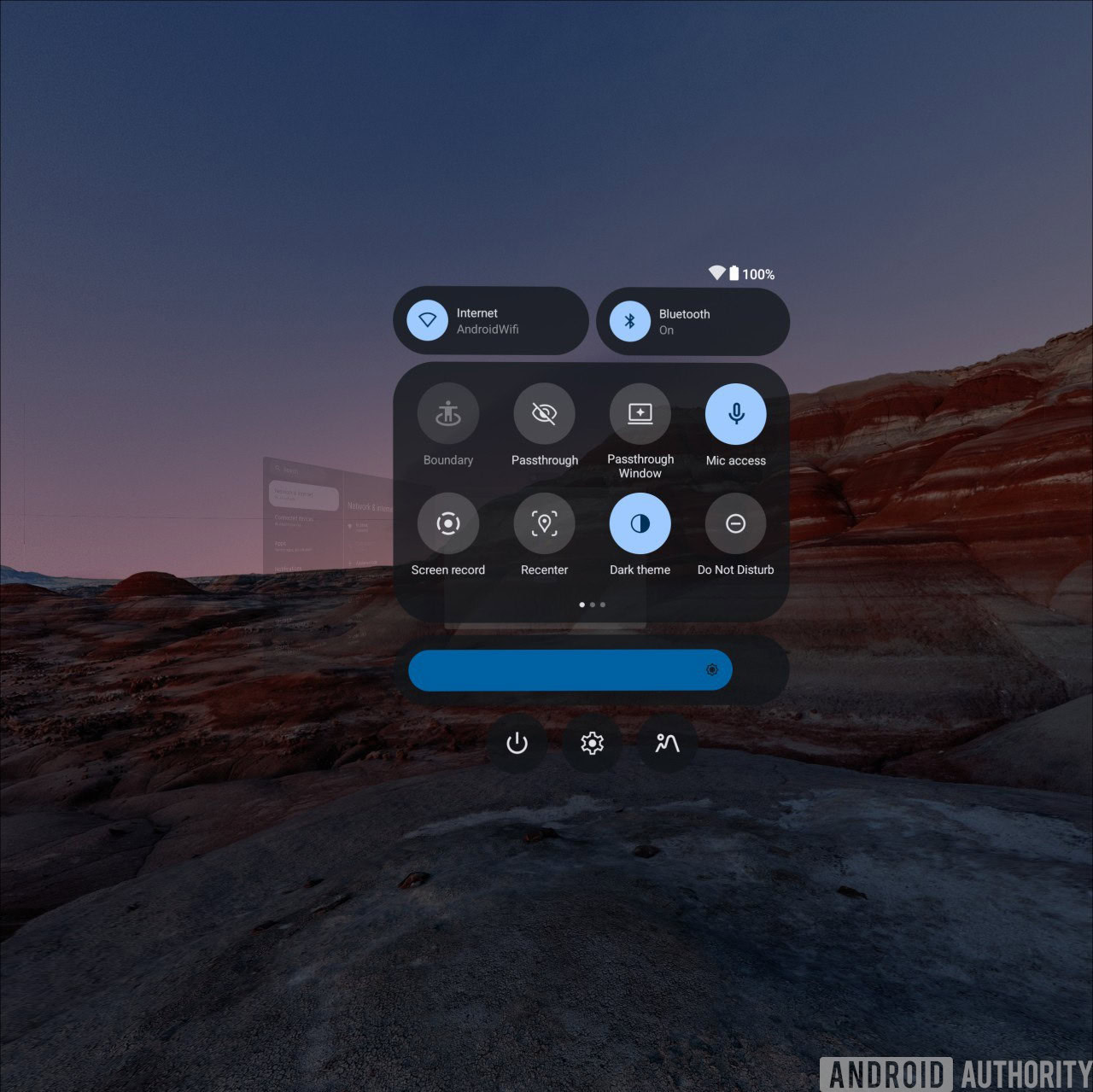
Mishaal Rahman / Android Authority
Meanwhile, it seems like Gboard has also been optimized for XR, though the keyboard looks a bit cramped in the screenshot we were sent.
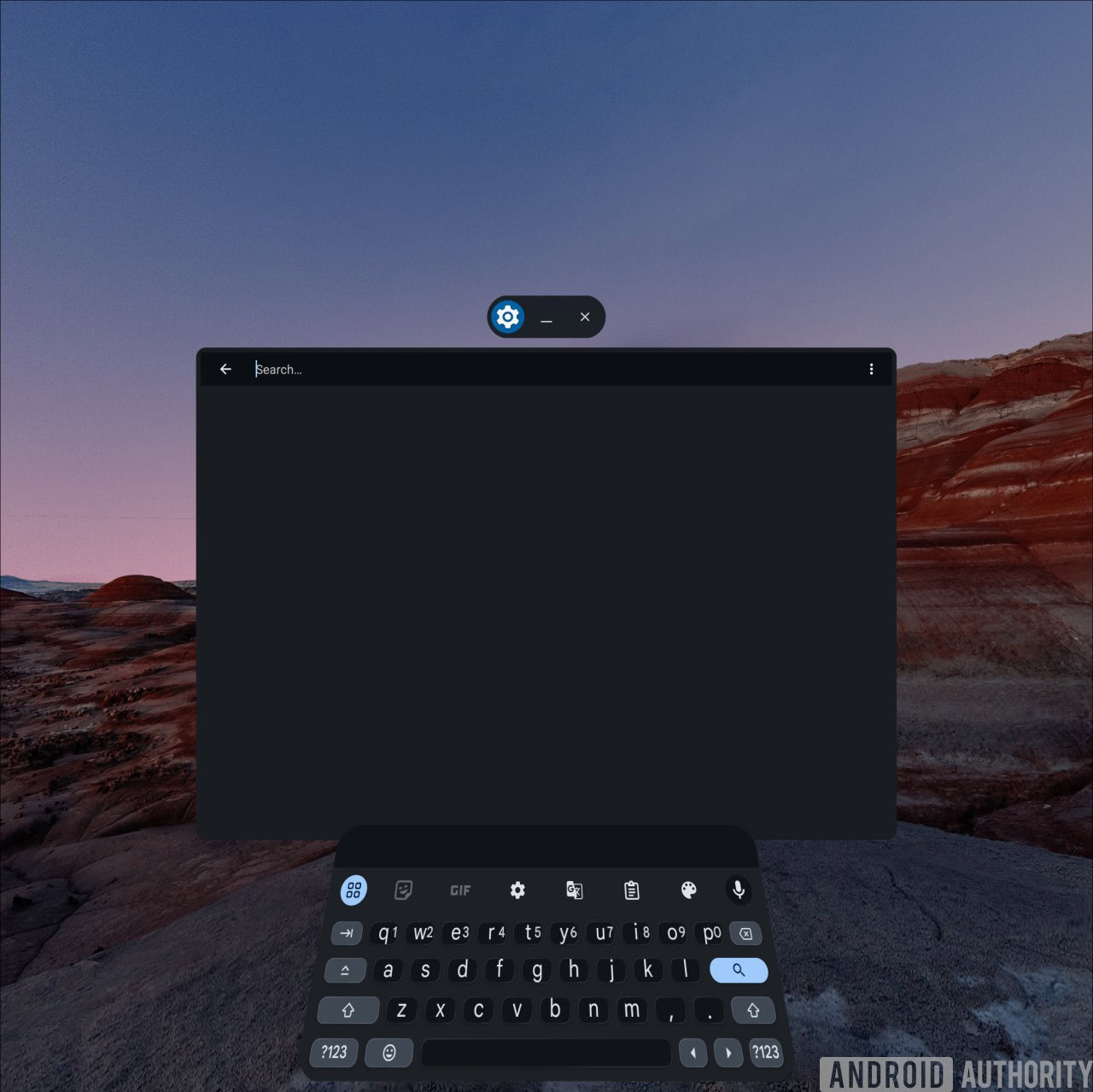
Mishaal Rahman / Android Authority
It’s likely you can resize it like you can with other windows, as demonstrated in one of the screen recordings the developer shared with us. It’s also possible that it just looks much better in actual XR than it does in a 2D representation of it, but we’ll need to wait to get our hands on actual hardware to verify that.
For the videos below, do note that Narek said the frame rate of the screen recording is choppy, but the actual emulator display was fine. In other words, don’t take these recordings as a true representation of the smoothness of the Android XR experience.
Google wasn’t willing to let reporters take photos of or record their experiences using Samsung’s prototype Android XR headset, so the Android Emulator is the closest we’ll get to showing you the real thing until real hardware is available next year. What do you think of this first look at the Android XR UI? Let us know in the comments below!
Got a tip? Talk to us! Email our staff at [email protected]. You can stay anonymous or get credit for the info, it's your choice.

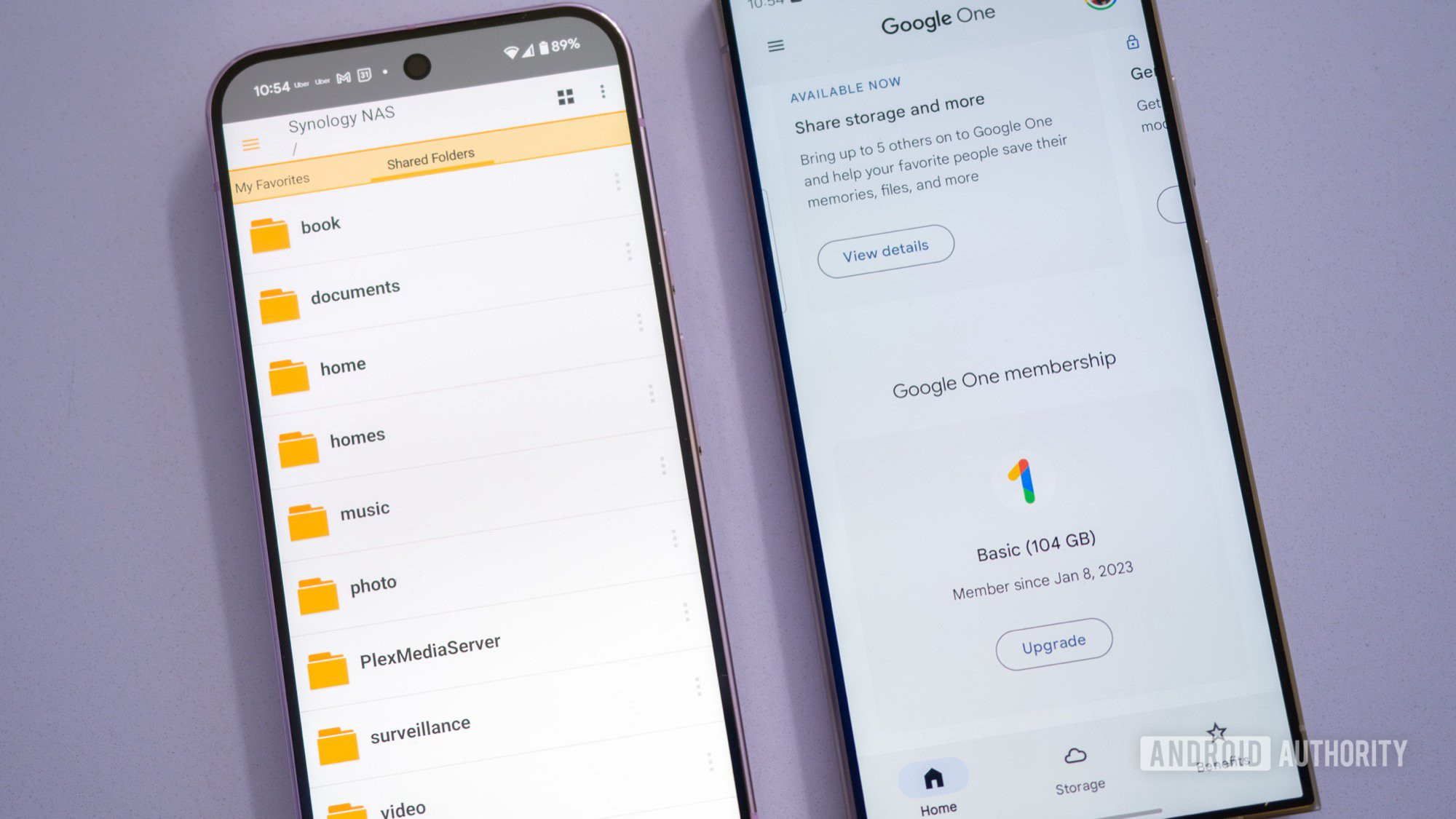
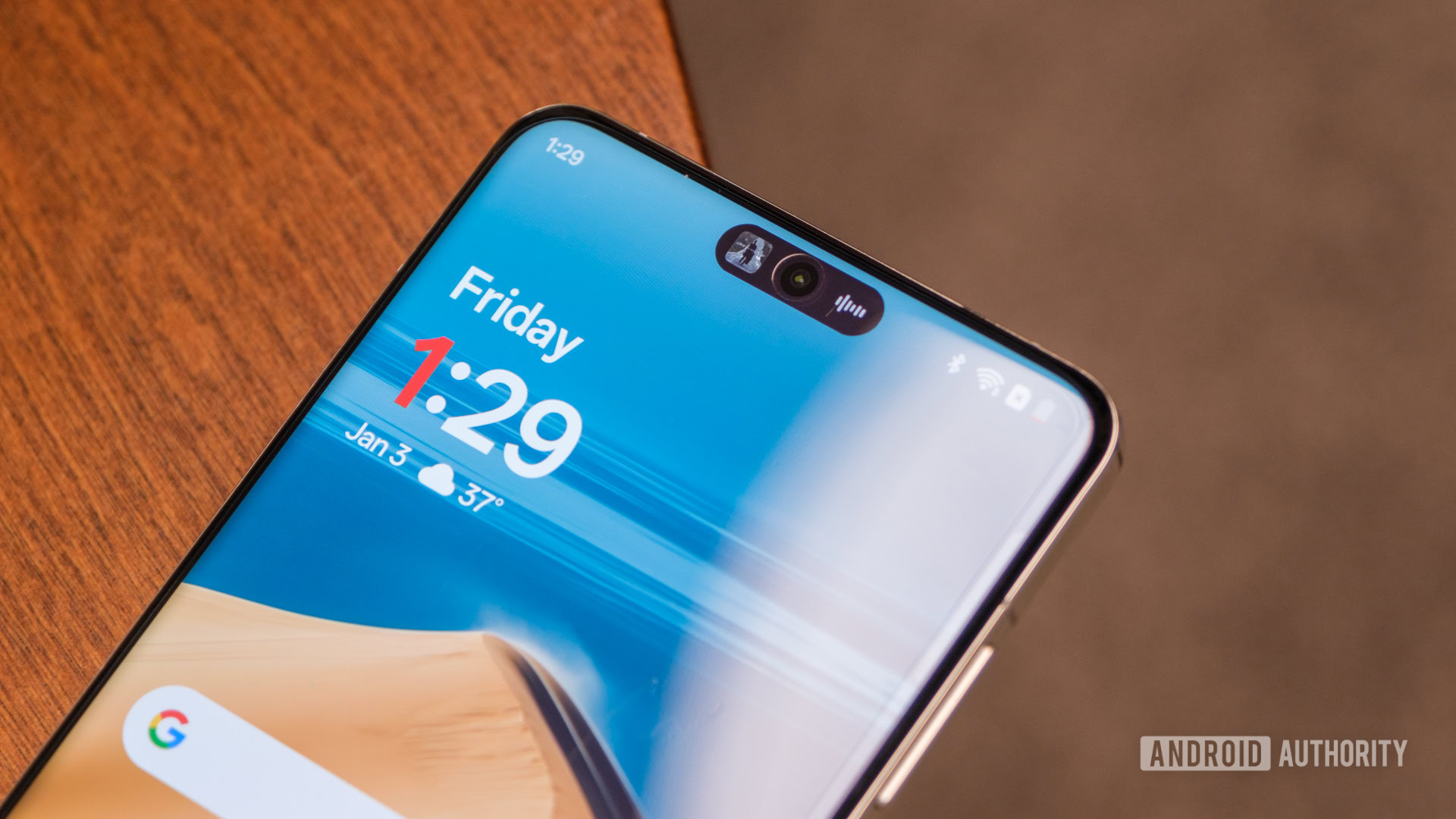




 English (US) ·
English (US) ·